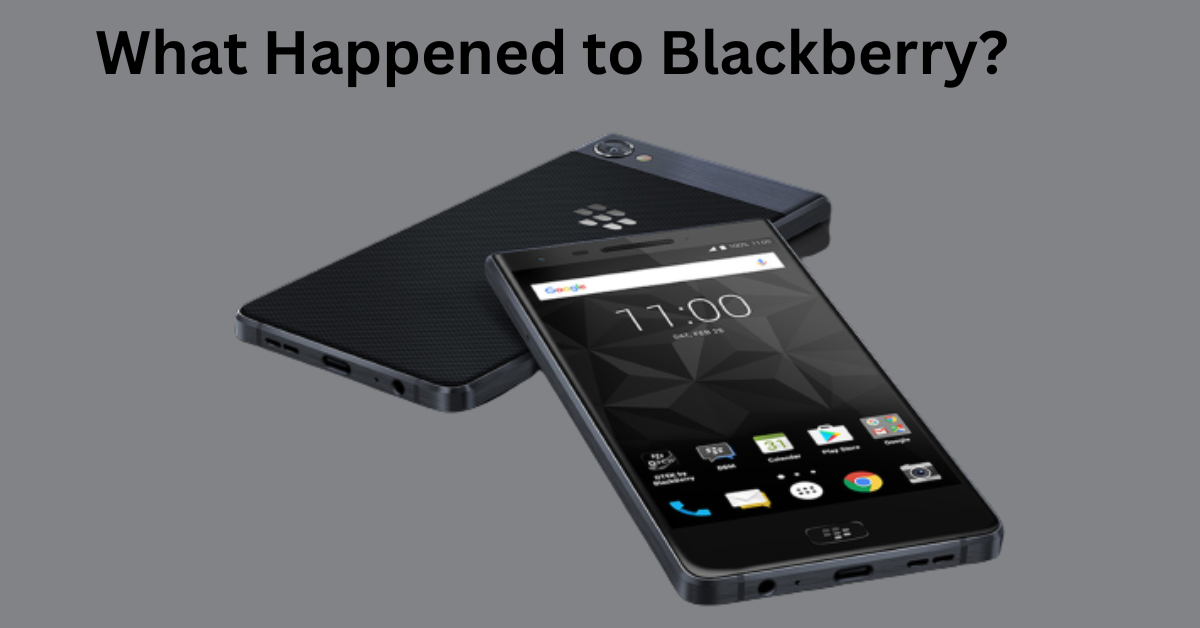BlackBerry, once the ruler of the smartphone industry, has shifted its focus away from manufacturing mobile phones. Over the years, BlackBerry has struggled to compete with the rising popularity of iPhone and Android smartphones.
The company's own BlackBerry OS has struggled to keep up with the app ecosystem and user experience offered by competitors.
What Happened to Blackberry?
BlackBerry was once a leading smartphone manufacturer, but its market share has declined significantly in recent years. BlackBerry's decline can be attributed to a number of factors, including:
1. Competition between iPhone and Android:
With the launch of the iPhone in 2007 and the subsequent introduction of Android smartphones, BlackBerry faced fierce competition.
These new smartphones offered touchscreens, powerful app ecosystems, and multimedia features that existing BlackBerry devices lacked.
2. Slow adoption of touchscreen devices:
BlackBerry took its time to embrace full touchscreen devices. It eventually released a touchscreen phone, but it couldn't compete effectively with the intuitive interface of iPhone and Android devices.
3. Lagging operating systems:
BlackBerry's operating systems, especially on older devices, have not been able to match the user experience that iOS and Android provide. The operating system lacked app diversity and developer support.
4. Security issues:
BlackBerry devices have been known for their security features, but security measures have improved on other platforms, especially iOS and Android. This diminished BlackBerry's unique selling point.
5. Management and strategic issues:
BlackBerry faced internal management challenges, including leadership changes and a lack of a clear strategy. The company struggled to innovate and adapt quickly to changing market demands.
6. Failed products and services:
BlackBerry launched products and services that failed to gain traction. For example, the BlackBerry PlayBook, a tablet, received poor reviews and sales.
BlackBerry's attempts to revive the brand with devices such as the BlackBerry 10 smartphone were also not as successful as expected.
7. Transition to software and services:
Realizing the decline of its hardware business, BlackBerry shifted its focus to software and services. They shifted to providing security software and solutions for businesses and governments.
These changes helped the company survive and restore some stability.
8. License Agreement:
BlackBerry began licensing its brand to other manufacturers. Some companies, especially in developing markets, continue to release smartphones under the BlackBerry brand. However, these phones often run on Android, which is not BlackBerry's native operating system.
Frequently asked questions:
Why did BlackBerry fail?
BlackBerry failed for many reasons:
- The emergence of Apple's iPhone and Google's Android operating system.
- BlackBerry's slow pace to adapt to the changing smartphone market.
- BlackBerry is focused on enterprise customers, not consumers.
- High prices for blackberries.
What is BlackBerry doing now?
BlackBerry is a software company that currently primarily provides security and enterprise mobility solutions. We also license our software to other companies.
Is BlackBerry still making smartphones?
No, BlackBerry stopped producing its own branded hardware in 2016. However, BlackBerry licenses its software to other companies that make BlackBerry-branded smartphones.
Why are BlackBerry smartphones still popular with some enterprise customers?
BlackBerry smartphones remain popular with some enterprise customers because they are known for their security and reliability. It's also relatively easy to manage and deploy.
What does the future hold for BlackBerry?
BlackBerry is currently focusing on its software business. We develop new software solutions for security, enterprise mobility, and the Internet of Things (IoT).





